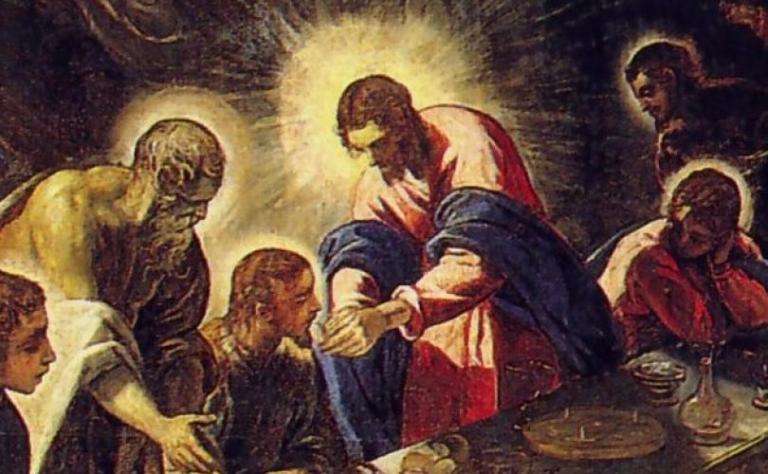
Today is Ash Wednesday, the beginning of Lent. I love this season of the church year, which is odd because it is a time for self-denial and repentance. I try to observe all of that, painful though it be, and yet I love Lent.
This is a paradox. How can we enjoy something designed to be unpleasant? The reason Lent works that way is suggested by a poem on the subject by George Herbert, the great 17th century Christian poet whom I have written about extensively in my academic career.
In his poem “Lent,” Herbert welcomes the “dear feast of Lent.” “Dear” showing he feels about it as I do. But he calls the season a “feast.” Lent is a fast, not a feast! And the entire poem is about the value and significance of fasting. Yet the entire poem develops the sense in which fasting is a kind of feasting!
This comes together at the final stanza, in which the Lenten fast is described as having two components: “starving” and “taking repast” (that is, eating). “Starving sin” and “taking such repast” that controls our faults.
We best observe Lent by fasting, good works, and other exercises in self-denial, yes, but also in “feeding” on God’s Word, by “feasting” on the Lord’s Supper.
At the very end of the poem, we are “reveling”–we would say “partying”–not in the usual place, the parlor where one entertains guests, but at the door, where we interact with our neighbors and those in need. We are “banqueting the poor,” in Lenten good works that do carry their own joy. But among those poor whom we should banquet is our own soul.
Here is the poem, taken from LenTree for George Herbert, an online day-by-day Lenten devotion consisting of readings from Herbert’s poetry:
Lent
| Welcome dear feast of Lent: who loves not thee,He loves not Temperance, or Authority,
But is composed of passion.
The Scriptures bid us fast; the Church says, now:
Give to your Mother, what you would allow
To every Corporation.
* * *
It ‘s true, we cannot reach Christ’s fortieth day;
Yet to go part of that religious way,
Is better than to rest:
We cannot reach our Savior’s purity;
Yet are bid, Be holy ev’n as he.
In both let ‘s do our best.
Who goes in the way which Christ has gone,
Is much more sure to meet with him, than one
Who travels the by-ways:
Perhaps my God, though he be far before,
May turn, and take me by the hand, and more
May strengthen my decays.
Yet Lord instruct us to improve our fast
By starving sin and taking such repast
As may our faults control:
That ev’ry man may revel at his door,
Not in his parlor; banqueting the poor,
And among those his soul. |
May you have a blessed Lent, a time of “revel” in which you banquet your soul.
UPDATE: Check out this article: 4 Things to Know About Ash Wednesday
Illustration: Detail from “Last Supper” by Tintoretto (1594), via Lifesite News, public domain.














